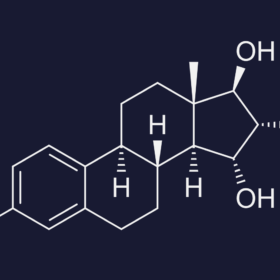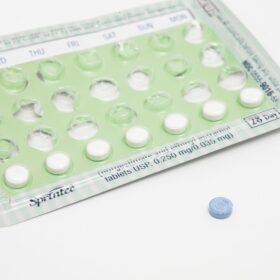
Mestranol
What is it?
Mestranol is a synthetic form of oestrogen. It’s currently only used in one type of pill – Norinyl-1. Most combined hormonal contraceptives (like the pill, patch and vaginal ring) contain a type of oestrogen called ethinylestradiol, alongside a synthetic progestogen.
How does it work?
Mestranol is a biologically inactive version of ethinylestradiol. It is converted to ethinylestradiol and then into estradiol (aka oestrogen) by the liver, and works with the progestogen in the combined pill to stop ovulation (the release of an egg from the ovaries), stopping fertilisation of an egg by sperm and preventing pregnancy. Estradiol also helps to regulate the lining of the womb helping to prevent breakthrough bleeding on the pill.
What is it used in?
Norinyl-1 is the only combined pill brand currently available in the UK containing mestranol.
What are the side effects?
Possible oestrogenic side effects of combined hormonal contraceptive methods include:
- Bloating
- Breast tenderness or swelling
- Reduced sex drive
- Headaches
- Mood swings
- Nausea or vomiting
- Water retention
What are the risks?
Typically, increased risk of blood clots with the combined hormonal methods of contraception has been associated with the oestrogen component. Oestrogen receptors in the liver are involved in the production of blood clotting factors.
To decrease the risks of blood clots and other side effects, the dose of synthetic oestrogen in combined contraceptive pills has been gradually dropping over time. Blood clot risk now may vary slightly between different brands of combined pill, depending on the type of progestogen. However for women who already are at an increased risk of blood clots there are other safer methods of contraception available which do not contain oestrogen.
Our medical review process
This article has been medically reviewed for factual and up to date information by a Lowdown doctor.






